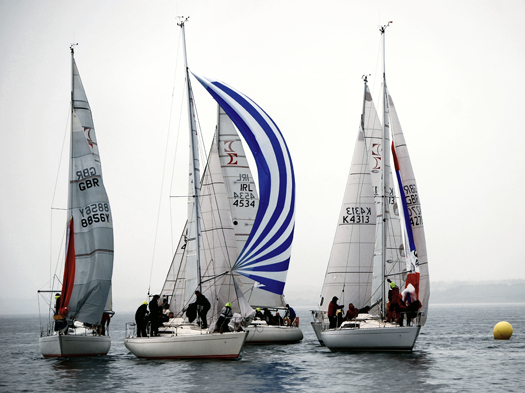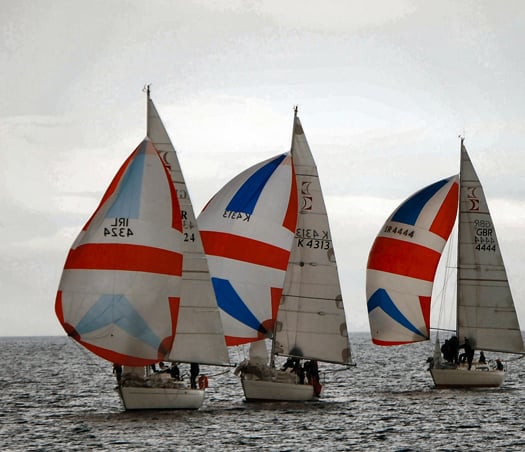Displaying items by tag: Mischief
White Mischief Wins Sigma 33 Title Again
The Hamilton Shipping sponsored event was scheduled over three days but Friday's 37 knot winds put paid to racing that day. However Principal Race Officer Robin Gray's efforts on the Saturday produced five races then and another three on Sunday, making a substantial championship race programme.

The seventeen strong fleet came from Scotland, Dublin Bay, the Isle of Man, Belfast Lough and Strangford Lough.
Proving that consistency as well as speed pays, Goodbody won only one race but counted scores never over 4th, giving White Mischief a total of 19, seven ahead of runner up, newcomer Stephen Milne and the team on the borrowed Cushendall based Insider. Milne is a member of the Skandia Team GBR Performance Squad as crew for John Gimson in a Star.

The first and fifth races went to the Scottish boat, Mayrise (James Millar) but a disqualification in Race 7 dropped her from starting third overall on the Sunday to a 6th place finish. Ross Boyd's Mithril from Quoile won Races 2 and 4 and the other Strangford Lough entry, Signet of Kip made up for a disqualification in Race 2 by winning Races 3 and 8. Goodbody took first in Race 7.
At the prize giving Hamilton Shipping's Finance Director Ken Craig admitted that he knew nothing about sailing but was impressed by this competition.

He couldn't be 69!

Hamilton Shipping Finance Director Ken Craig and his wife Tricia with RUYC Rear Commodore Stephen Graham and the crew of White Mischief. Photos by Ken Hunter
























































